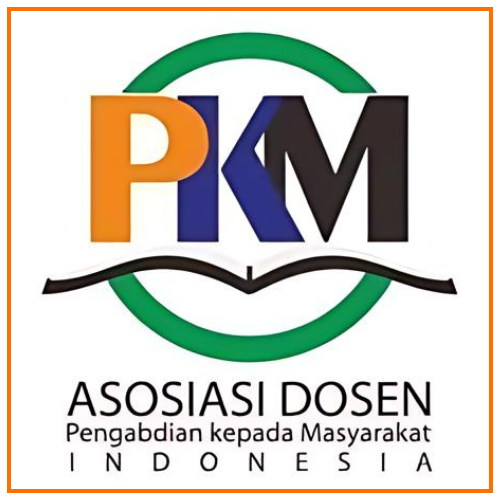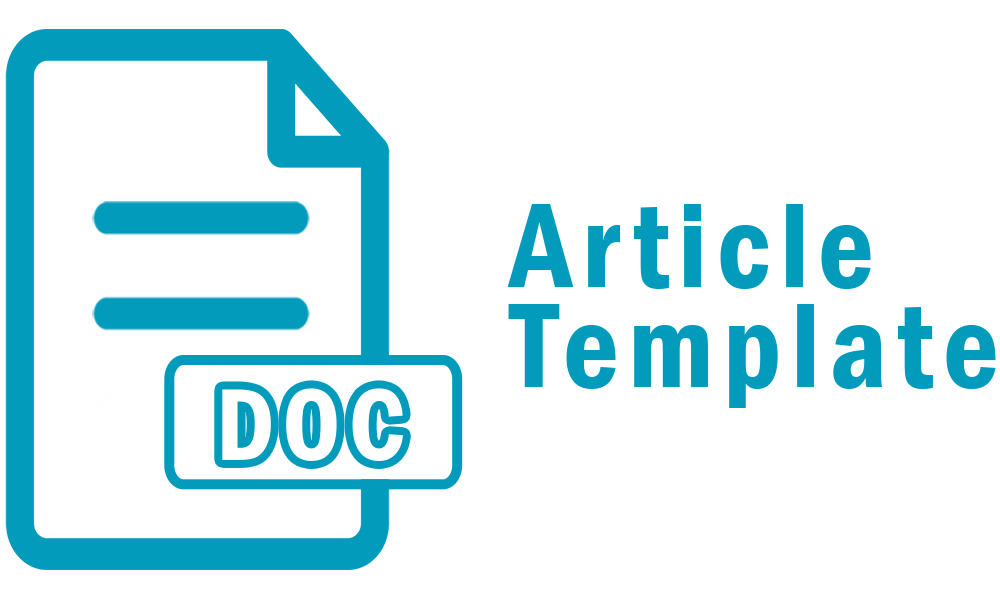Lesson Study: A Systematic Routine to Enhance Students’ Social Character and Creative Writing Abilities
Abstract
The students’ receptiveness to the learning environment significantly increased from 52.09% in cycle 1 to 85.14% in cycle 2. The cognitive domain has significantly enhanced knowledge acquisition, particularly in students’ creative writing skills. The proportion of students in IIIA, exhibiting this proficiency increased from 37% in cycle 1 to 77% in cycle 2. In class IIIB, there was a significant 40% surge, as the percentage escalated from 43% to 83%. Thus, adopting lesson study allows students to improve their social behaviour and support their writing ability.
Keywords: Creative writing; interactive learning; social character building; collaboration.
Full Text:
PDFReferences
Akiba, M., Murata, A., Howard, C. C., & Wilkinson, B. (2019). Lesson Study Design Features for Supporting Collaborative Teacher Learning. Teaching and Teacher Education, 77. https://doi.org/10.1016/j.tate.2018.10.012.
Aldossary, K. (2022). EFL Students’ Perceptions of Google Docs as an Interactive Tool for Learning Writing. International Journal of English Linguistics, 12(2). https://doi.org/10.5539/ijel.v12n2p60.
Apriani, E., Arsyad, S., Syafryadin, S., Supardan, D., Gusmuliana, P., & Santiana, S. (2022). ICT Platforms for Indonesian EFL Students Viewed from Gender During the COVID-19 Pandemic. Studies in English Language and Education, 9(1), 187-202.
Bensley, D. A., Lilienfeld, S. O., Rowan, K. A., Masciocchi, C. M., & Grain, F. (2020). The Generality of Belief in Unsubstantiated Claims. Applied Cognitive Psychology, 34(1). https://doi.org/10.1002/acp.3581.
Bingham, A. J., Adams, M., & Stewart, R. L. (2021). Competency-Based Education: Examining Educators’ Experiences. Qualitative Report, 26(3). https://doi.org/10.46743/2160-3715/2021.4383.
Coenders, F., & Verhoef, N. (2019). Lesson Study: Professional Development (PD) for Beginning and Experienced Teachers. Professional Development in Education, 45(2). https://doi.org/10.1080/19415257.2018.1430050.
Daryanes, F., Darmadi, D., Fikri, K., Sayuti, I., Rusandi, M. A., & Situmorang, D. D. B. (2023). The Development of Articulate Storyline Interactive Learning Media Based on Case Methods to Train Student’s Problem-Solving Ability. Heliyon, 9(4). https://doi.org/10.1016/j.heliyon.2023.e15082.
Dewi, Y. N., Zaim, M., & Rozimela, Y. (2022). Interactive Learning Using E-Learning Module in Learning English for Senior High School: A Review of Related Articles. JELITA: Journal of Education, Language Innovation, and Applied Linguistics, 1(2), 125–134. https://doi.org/10.37058/jelita.v1i2.5306.
Erito, S. N. P. (2022). Undergraduate Students’ Perspective on the Use of Padlet as Learning Tool for English Writing. JELLE : Journal of English Literature, Linguistics, and Education, 3(2). https://doi.org/10.31941/jele.v3i2.2302.
Etfita, F., Wahyuni, S., Satriani, E., Alber, A., & Asnawi, A. (2022). Exploring the Use of Padlet in Synchronous Learning: Students’ Perceptions of its Advantages and Disadvantages. Journal of English Language Teaching and Linguistics, 7(2). https://doi.org/10.21462/jeltl.v7i2.819.
Fatimah, A. S., & Santiana, S. (2017). Teaching in 21st Century: Students-Teachers’ Perceptions of Technology Use in the Classroom. Script Journal: Journal of Linguistic and English Teaching, 2(2), 125.
Firdaus, F., & Melani, M. (2024). Students’ Perception of Applying Teacher-in-Role during English Learning Process: A Descriptive Study of Middle School Students. JELITA: Journal of Education, Language Innovation, and Applied Linguistics, 3(1), 41–52. https://doi.org/10.37058/jelita.v3i1.6317.
Fujii, T. (2016). Designing and Adapting Tasks in Lesson Planning: a Critical Process of Lesson Study. ZDM - Mathematics Education, 48(4). https://doi.org/10.1007/ s11858-016-0770-3.
Grella, C. T., Staubitz, T., Teusner, R., & Meinel, C. (2017). Interactive Collaborative Learning. In Springer International Publishing (Vol. 1).
Haataja, E., Dindar, M., Malmberg, J., & Järvelä, S. (2022). Individuals in a Group: Metacognitive and Regulatory Predictors of Learning Achievement in Collaborative Learning. Learning and Individual Differences, 96. https://doi.org/10.1016/j.lindif.2022.102146.
Hamidah, N. M., Yanto, E. S., & Ahmad, Y. B. (2022). Exploring Character Education Values on Picture Dialogue in English Textbooks for Eight Grade of Junior High School. JIIP - Jurnal Ilmiah Ilmu Pendidikan, 5(9). https://doi.org/10.54371/jiip.v5i9.842.
Howe, C., & Zachariou, A. (2019). Small-Group Collaboration and Individual Knowledge Acquisition: The Processes of Growth During Adolescence and Early Adulthood. Learning and Instruction, 60. https://doi.org/10.1016/j.learninstruc.2017.10.007.
Huong, L. T. T., Quynh, N. T. T., Ngoc, N. T., & Duc, N. M. (2021). Applying the Lesson Study Model in Developing Teaching Capability for Young Teachers in Vietnam. European Journal of Educational Research, 10(4). https://doi.org/10.12973/EU-JER.10.4.1755.
Interactive Task Learning. (2019). In Interactive Task Learning. https://doi.org/10.7551/mitpress/11956.001.0001.
Jagals, D., & Van der Walt, M. (2018). Design Principles for Lesson Study Practice: A Case Study for Developing and Refining Local Theory. Eurasia Journal of Mathematics, Science and Technology Education, 14(8). https://doi.org/10.29333/ejmste/91830.
Jayasiriwardene, S., & Meedeniya, D. (2023). An Adaptive and Interactive Learning Toolkit (iLearn). Software Impacts, 15. https://doi.org/10.1016/j.simpa.2023.100471.
Kawuryan, S. P., Sayuti, S. A., Aman, & Dwiningrum, S. I. A. (2021). Teachers Quality and Educational Equality Achievements in Indonesia. International Journal of Instruction, 14(2). https://doi.org/10.29333/iji.2021.14245a.
Khofifah, A., Arbarini, M., & Gupta, S. (2023). Community Learning Center Efforts in Lifelong Learning Campaign in Equality Education. Edukasi, 17(1).
Loes, C. N. (2022). The Effect of Collaborative Learning on Academic Motivation. Teaching and Learning Inquiry, 10. https://doi.org/10.20343/teachlearninqu.10.4.
Maladerita, W., Ananda, A., & Montesori, M. (2023). Discovery Learning: Implementation in Social Learning-Assisted Interactive Digital Teaching Materials to Improve Student Learning Outcomes. International Journal of Humanities Education and Social Sciences, 2(4).
Maladerita, W., & Anwar, S. (2023). Literature Study: Application of Character Education in the Formation of Social Attitudes Nationality of Students through Social Studies Learning. International Journal of Humanities Education and Social Sciences, 2(4).
Marras, M., Boratto, L., Ramos, G., & Fenu, G. (2022). Equality of Learning Opportunity via Individual Fairness in Personalized Recommendations. International Journal of Artificial Intelligence in Education, 32(3). https://doi.org/10.1007/s40593-021-00271-1.
Martin, A., Tarnanen, M., & Tynjälä, P. (2021). Narratives of Professional Development in a Teachers’ Creative Writing Group. New Writing, 18(4). https://doi.org/10.1080/14790726.2021.1900274.
Marzuki, A. G., & Santiana, S. (2020). Using Padlet as a Digital Tool for Enhancing EFL Students’ Collaborative Writing.
Marzuki, A. G., & Santiana, S. (2021). EFL Students’ Perception of Applying the Technological Tools in Language Learning.
McComas, W. F. (2014). Project-Based Instruction. In The Language of Science Education. https://doi.org/10.1007/978-94-6209-497-0_71.
Muchtar, D., & Suryani, A. (2019). Pendidikan Karakter Menurut Kemendikbud (Telaah Pemikiran atas Kemendikbud). Edumaspul: Jurnal Pendidikan, 3(2).
Nückles, M., Roelle, J., Glogger-Frey, I., Waldeyer, J., & Renkl, A. (2020). The Self-Regulation-View in Writing-to-Learn: Using Journal Writing to Optimize Cognitive Load in Self-Regulated Learning. In Educational Psychology Review (Vol. 32, Issue 4). https://doi.org/10.1007/s10648-020-09541-1.
Qureshi, M. A., Khaskheli, A., Qureshi, J. A., Raza, S. A., & Yousufi, S. Q. (2023). Factors Affecting Students’ Learning Performance through Collaborative Learning and Engagement. Interactive Learning Environments, 31(4). https://doi.org/10.1080/10494820.2021.1884886.
Ramírez-Montoya, M. S., McGreal, R., & Agbu, J. F. O. (2022). Complex Digital Horizons in the Future of Education 4.0: Insights from UNESCO Recommendations. RIED-Revista Iberoamericana de Educacion a Distancia, 25(2). https://doi.org/10.5944/ried.25.2.33843.
Safitri, M. L. O., Mustadi, A., & Retnawati, H. (2021). The Role of Teachers in Implementation Social Care Education Character at Primary Schools. Jurnal Iqra’ : Kajian Ilmu Pendidikan, 6(2). https://doi.org/10.25217/ji.v6i2.1315.
Saito, E., & Sato, M. (2012). Lesson Study as an Instrument for School Reform: a Case of Japanese Practices. Management in Education. https://doi.org/10.1177/0892020612445101.
Santiana, S., Silvani, D., & Ruslan, R. (2021). Optimizing LMS CANVAS for Interactive Online Learning Perceived by the Students. Journal of English Education and Teaching, 5(4), 529-543.
Santoianni, F., Petrucco, C., Ciasullo, A., & Agostini, D. (2022). Teaching and Mobile Learning: Interactive Educational Design. In Teaching and Mobile Learning: Interactive Educational Design. https://doi.org/10.1201/9781003052869.
Sari, P. P., & Ardianti, D. (2021). Implementation of Problem-Based Learning ( PBL ) on Interactive Learning Media. Journal of Technology and Humanities, 2(2).
Sato, M. (2017). Lesson Study for Learning Community.
Silvani, D., Santiana, S., & Syakira, S. (2023, July). Project Based Learning in an ESP Class: Voices from Indonesian EFL Students. In Conference on English Language Teaching (pp. 330-342).
Sobari, T., Mustika, I., & Sinaga, O. (2020). Learning Model of Report Writing Skill Based on Problem Through Learning Cycle Technique As Media of Students’ Character Building. PalArch’s Journal of Archaeology of Egypt / Egyptology, 17(5).
van den Boom-Muilenburg, S. N., de Vries, S., van Veen, K., Poortman, C., & Schildkamp, K. (2022). Leadership Practices and Sustained Lesson Study. Educational Research, 64(3). https://doi.org/10.1080/00131881.2022.2090982.
Wake, G. (2023). Designing Lesson Study for Individual and Collective Learning: Networking Theoretical Perspectives. International Journal for Lesson and Learning Studies, 12(1). https://doi.org/10.1108/IJLLS-08-2022-0111.
Wolthuis, F., van Veen, K., de Vries, S., & Hubers, M. D. (2020). Between Lethal and Local Adaptation: Lesson Study as an Organizational Routine. International Journal of Educational Research, 100. https://doi.org/10.1016/ j.ijer.2020.101534.
DOI: https://doi.org/10.37058/jelita.v3i2.11376
Refbacks
- There are currently no refbacks.








Journal of Education, Language Innovation, and Applied Linguistics
Lembaga Penelitian, Pengabdian Kepada Masyarakat dan Penjaminan Mutu Pendidikan (LP2M-PMP) Universitas Siliwangi
Jalan Siliwangi Number 24, Kota Tasikmalaya - 46115
West Java, Indonesia











